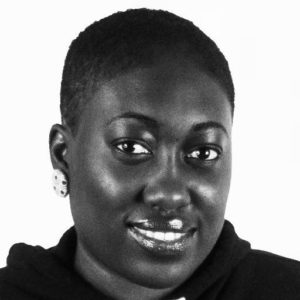
Behold Music & Mental Health, a feature we hope to bring you more often than not, written by the fabulous Imade Borha. She’ll check in from time to time with her thoughts on … well … presumably, music and mental health. Duh. If you dig, you can follow her on Twitter here. Enjoy!
Being a journalist can be nerve-wracking. You’re tight on time, and often have to cram information like the night before a test. When I found out I would be interviewing Angélique Kidjo, I jumped at the chance. You see, for many people who have no connection to their African parent, African music parented them. Kidjo’s music doesn’t just represent entertainment. Her music is an answer to my deep longing for identity.
But when I interviewed Kidjo, she didn’t want to talk about music. She wanted to talk about her fiery passion for social justice. And internally, I freaked out.
This is what anxiety does: What am I going to do if I can’t get enough quotes on her music to put this piece together?
This is what depression does: I’m a horrible journalist and I can’t put this interview together.
This is what anxiety and depression does: I won’t have enough quotes on her music and even if I did, I won’t be able to write this interview because I’m a horrible journalist.
Mental illness can make the situation about you when it isn’t about you. Mental illness can make life seem like nothing is more important than your flaws. I realized this when I went to Kidjo’s concert last Friday at the Strathmore. Her music, as a conduit of both joy and pain, re-centered me.
“Does your heart beat? Then you have rhythm.”
Kidjo twirled and jumped to the beat in such an energetic way, proving that age is nothing but a number. She beamed on stage, whether she was tapping out a beat on a cajon box, inviting the audience to dance on stage, or singing throughout the crowd, collecting hugs and even a gift along the way.
In between songs, when Kidjo discussed her work at the Batonga Foundation, my flaws could not have been more miniscule.
“I took the dirt road,” she said. “I tried to find girls who had no future without education. Never talked.”
Kidjo shared that some of these girls are faced with the threat of marriage to an old man at 10 or 12 years old. Others encounter physical abuse or parents who don’t see a future in education. Despite these dangers, Kidjo witnessed these same girls talk almost endlessly.
Kidjo recounted a wish from one student: “I want to become the first female president of Benin.” Kidjo also discussed a very simple but stunning revelation: “You transform the country when girls are educated.” This advocacy is inspired by listening to heartfelt pleas from African women who feel maligned and forgotten. “Why can’t they cry with us and I with them?”
When I stepped out of my own life, and my own self-defeating thoughts, I had the space to listen to not what I wanted to hear, but what was actually being said. And what was being said was far more important than any flaw that I can overcome.
